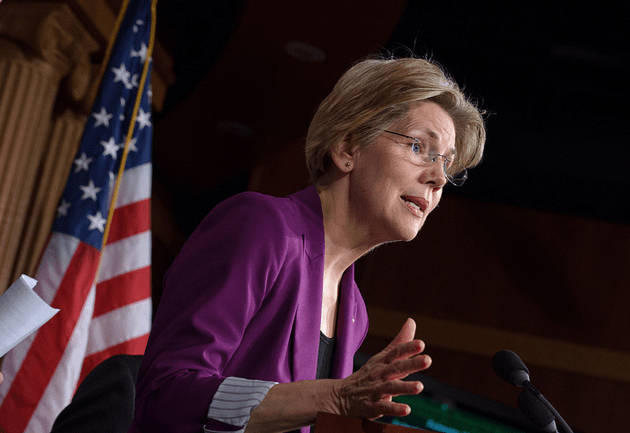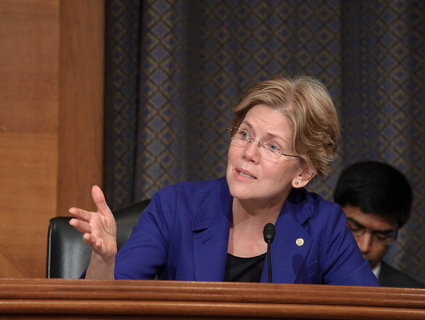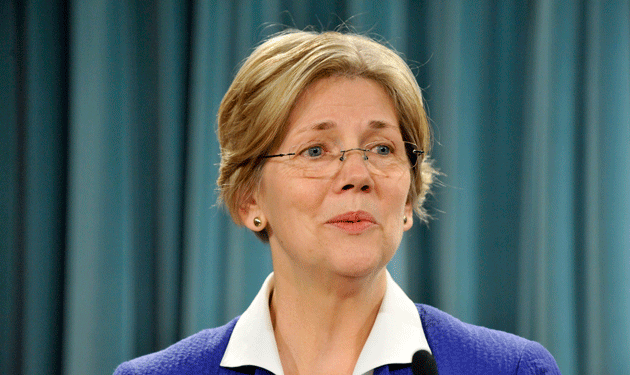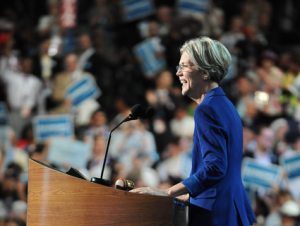Update: On Wednesday evening, the Senate approved Michael Froman as US Trade Representative by a vote of 93 to 4. Sen. Elizabeth Warren (D-Mass.) voted against him, as did Sens. Carl Levin (D-Mich.), Joe Manchin (D-W.Va.), and Bernie Sanders (I-Vt.). Sen. Barbara Boxer (D-Calif.) voted present.
Sen. Elizabeth Warren (D-Mass.) asked her colleagues Wednesday to oppose Michael Froman, President Barack Obama’s pick for US Trade Representative, charging that he is not committed to giving the American public information about a sweeping trade deal now being negotiated between the US and 11 other countries.
The massive free trade agreement, called the Trans-Pacific Partnership, would affect everything from intellectual property rights, to product safety standards, to financial regulations. Many lawmakers criticized the previous trade representative, Ron Kirk, for the secrecy surrounding the deal; certain members of Congress can see the proposed text of the deal, but the public cannot. Warren has called on the office of the US Trade Representative to release the full text of the TPP deal to the public. But in a floor speech Wednesday, she said Froman has made clear he would not release the text of the deal and is not interested in making the negotiations more transparent:
I asked the President’s nominee to be Trade Representative—Michael Froman—three questions: First, would he commit to releasing the composite bracketed text [the full text of the TPP as it currently stands]? Or second, if not, would he commit to releasing just a scrubbed version of the bracketed text that made anonymous which country proposed which provision…
Third, I asked Mr. Froman if he would provide more transparency behind what information is made [available] to the trade office’s outside advisors. Currently, there are about 600 outside advisors that have access to sensitive information, and the roster includes a wide diversity of industry representatives and some labor and NGO representatives too. But there is no transparency around who gets what information and whether they all see the same things, and I think that’s a real problem.
Mr. Froman’s response was clear: No, no, no.
Warren has raised concerns that Wall Street is trying to weaken financial regulations through the TPP. Rep. Darrell Issa (D-Calif.) is worried that the deal could imperil an open internet. Sen. Sherrod Brown (D-Ohio) says the trade agreement could move jobs overseas. The TPP is not final yet, so no one can say for sure what will be in it. But Warren says the American public deserves to be a part of the discussion.
“The American people have the right to know more about the negotiations that will have dramatic impact on the future of the American economy,” Warren said. “I believe in transparency and democracy, and I think the U.S. Trade Representative should too.” A vote is expected Wednesday afternoon.
















